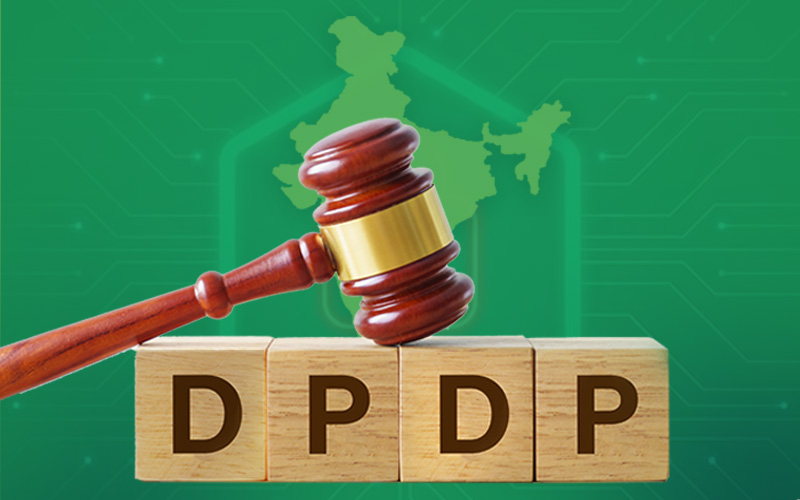Introduction
Compliance in Information Technology is paramount in today’s data-driven and interconnected world. IT businesses in India have been aggressively going global leaving all past records behind. Today, adhering to the local IT security compliance regulations is not an option but a requirement to ensure sensitive data protection, adequate client trust and sustainability in competitive industries. In the last decade, India has witnessed a significant rise in the adoption of technology in IT and in a similar fashion, the need for compliance is more than ever.
- Personal Data Protection Bill, 2023: The most anticipated development in India’s Data Protection policy is the Personal Data Protection Bill, of 2023. The objective of this legislation is to regulate the processing of personal data of Indian citizens in digitized form, offline data when digitized also falls under this act. As per this bill, organizations that collect, manage, process, and store the personal data of individuals will need to adhere to and comply with the stringent data protection and security standards. The bill will impose strict penalties on organizations for non-compliance and enhance the rights of individuals. Businesses will need to prepare for the implementation to ensure compliance with this regulation.
- Revised IT Act and Rules: The Information Technology Rule (Intermediary Guidelines and Digital Media Ethics Code, 2021), has introduced changes to the IT Act. New rules mandate compliance requirements that have been imposed on Intermediaries, Digital Media and social media platforms and intermediaries. The changes in the act mandate having a dedicated compliance officer and removing the objectionable content in a specified timeline. Businesses must stay compliant with the changes in this rule.
- Reserve Bank of India’s Guidelines: The financial section in India has been actively receiving guidelines related to Cybersecurity from the Reserve Bank of India. A framework for the identification and mitigation of cyber threats is established in addition to existing Cybersecurity norms. Financial institutions must adhere to these guidelines to safeguard their systems and protect confidential information.
- ISO 27001 certification: Considered as the baseline of the Information Security standard worldwide to manage information security management systems is being widely adopted in India. It is the de facto standard for information security that organizations can get started with and enhance with other security frameworks to cover the vast umbrella of IT security. ISO 27001 certification is proprietary and is globally recognized and will be valuable certification for organizations to demonstrate their security posture and to build client trust.
- Data localization and Cross-border Data Transfer: As the discussion evolves on this subject in India, the legislation still needs to deliberate and explore the options to enforce data localization and cross-border data transfer. Organizations need to keep a tab on the latest updates on this topic which is in principle essential from the privacy compliance standpoint.
- National Cybersecurity: India’s Computer Emergency Response Team (CERT) has released many guidelines for secure application development, API security, Web server security, auditing and logging, secure networking, etc. The cyber security division of the Ministry of Electronics and Information Technology offers guidelines, Research and development, and best practices for government entities which can also be followed by private organizations
- Audits and Penetration tests: In light of global security incidents, organizations in India are opting to undergo external Penetration tests of their network, applications and systems to maintain a healthy security posture and proactively address vulnerabilities to comply with regulations and protect their assets.
Conclusion
The security landscape in India is growing at a rapid scale and businesses need to stay ahead of the curve to ensure the protection of data and commit to upholding their security. It is now clear that with the introduction of the Digital Personal Data Protection bill and revised rules in the IT Act, India is working towards enhancing cybersecurity and data protection. Organizations must adapt their security practices and security compliance frameworks to meet regulatory requirements. This will enable organizations to safeguard their infrastructure and build client trust.




